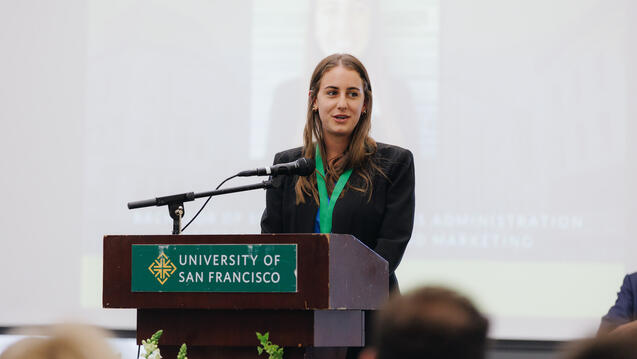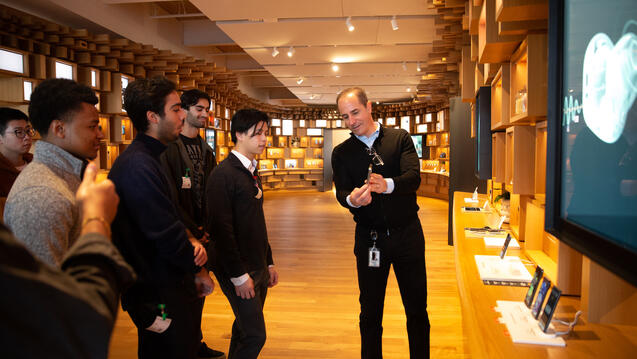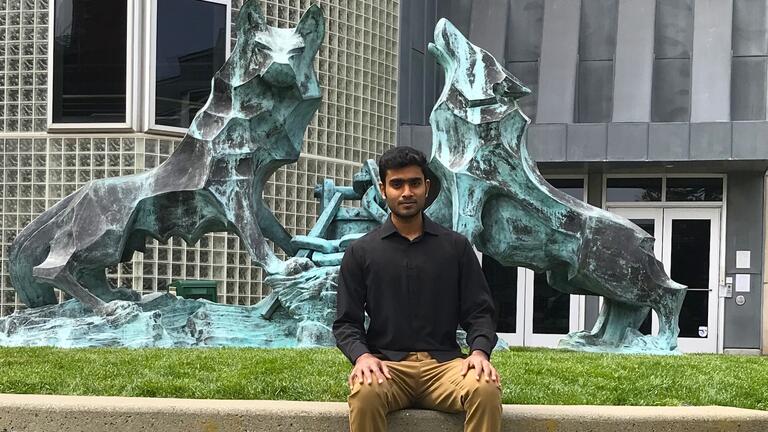
Students Take Fast Track to Master’s Degree
“I never wrote a single line of code before coming here,” said Khushal Chekuri ’24.

As a first-year undergraduate in computer science, he worried he might never catch up to his classmates. Now, with a solid grounding in software development, processor design, machine learning, computer architecture, operating systems, and computer networks, he will graduate in May with both a bachelor’s and a master’s degree, thanks to USF’s 4+1 program.
In the 4+1 program, students earn two degrees in five years, instead of the six years normally required. They also save 50 percent on tuition in their fifth year.
For Chekuri, spending a fifth year to earn a master’s degree in computer science was a no-brainer. “Time saved, money saved,” he said.
Chekuri is especially proud of two projects he pursued at USF. In his graduate capstone, he supported USF business students by designing the database for a new mobile app called Dishcovery. “It’s basically Tinder for food,” he said. He also interned for UNICEF, helping build an app that surveys millions on the efficacy of aid.
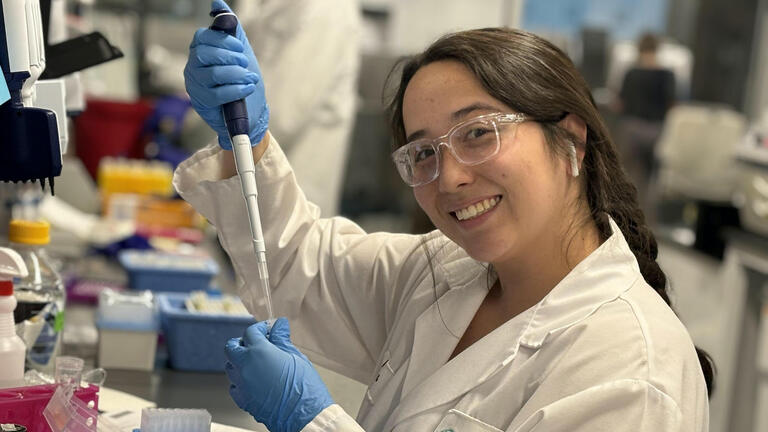
For Kylie Watanabe ’24, it was tough to stand out in the job market, even though she was a lab researcher, a team leader in water polo, a volunteer for the International Model United Nations Association, and a biology student with minors in biochemistry and philosophy.
To gain an edge, she entered USF’s biotechnology 4+1 program. “The lab courses I’ve taken for this program basically got me the job I have now,” she said.
Watanabe works with the cloning and automation team of Recombia Biosciences in South San Francisco, where “I build a lot of DNA and teach robots how to do experiments.”
She said she appreciates how some of the students in her graduate classes came to USF after years of work in the industry. “It’s really cool to meet people and ask, ‘What did you do? What was your life like? What’s the real world like for this field?’”
USF’s biotechnology 4+1 curriculum includes entrepreneurial and ethical aspects of the biotech industry, Watanabe said. “I want to create drugs and treatments that are accessible to those who really need it, not the select few who can afford it.
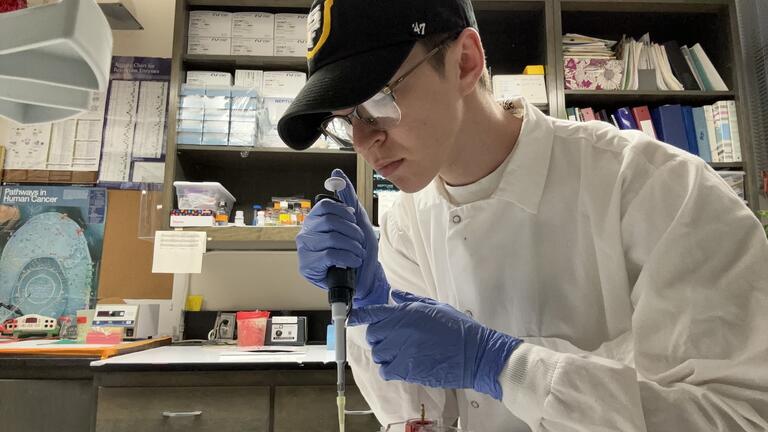
Discovering the cure for cancer has been a lifelong dream and real-life pursuit for Ayden Aloia ’25, who committed to cancer biology back in high school. Targeting the birthplace of biotechnology, South San Francisco, Aloia began his undergraduate study at USF in 2020. This spring he’ll receive a BS in biology and next year he’ll graduate with a biotechnology PSM degree like Watanabe’s.
As he seeks employment, Aloia focuses his research on the development of safer cancer treatments than chemotherapy and radiation. During his time at USF, he found classes led by Christina Tzagarakis-Foster to be most influential to his career.
Joining the 4+1 program was an easy choice for Aloia, who views a master’s degree in biotechnology as the “golden spot” for an aspiring worker in the industry. “I feel like I’m really getting a step ahead,” he said.
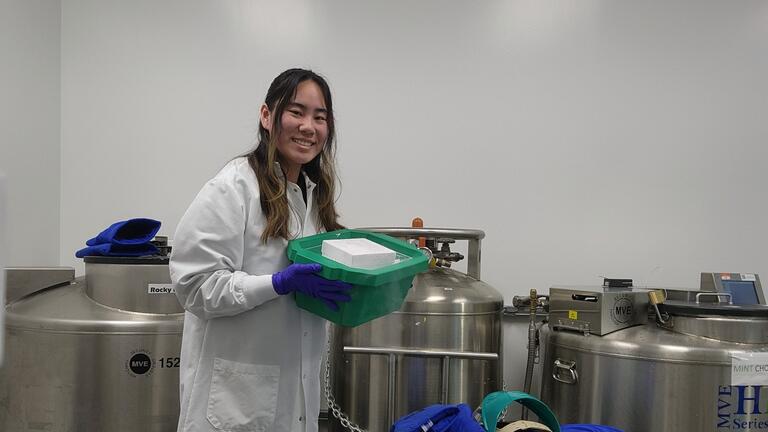
“Being in a science field, doing experiments, you’re going to come across a lot of failure, a lot of obstacles,” Zea Lim ’23 said. “But you do that in the hopes of finding something, and maybe publishing a paper in the future, doing further research, and creating something that could potentially help millions, billions of people in the world.”
Lim knew from her first visit to USF, when she sought out program director Cary Lai, that she wanted to study biotechnology and graduate with a BS/PSM. She now interns at Nkarta in South Francisco, helping to develop natural killer (NK) cell therapies for cancer.
But it’s only the beginning of the road for her. With a master’s degree at just 22 years old, she looks forward to using the year she saved with the 4+1 program to explore her career options. One possibility, she said, is working on biotechnology law through patent examination, which she learned about on a trip to Washington, D.C. with Associate Professor Moira Gunn.
“Being a student it’s hard to get your foot in the door when you don’t have connections. Dr. Lai, Dr. Young, Dr. Gunn — they do.”
